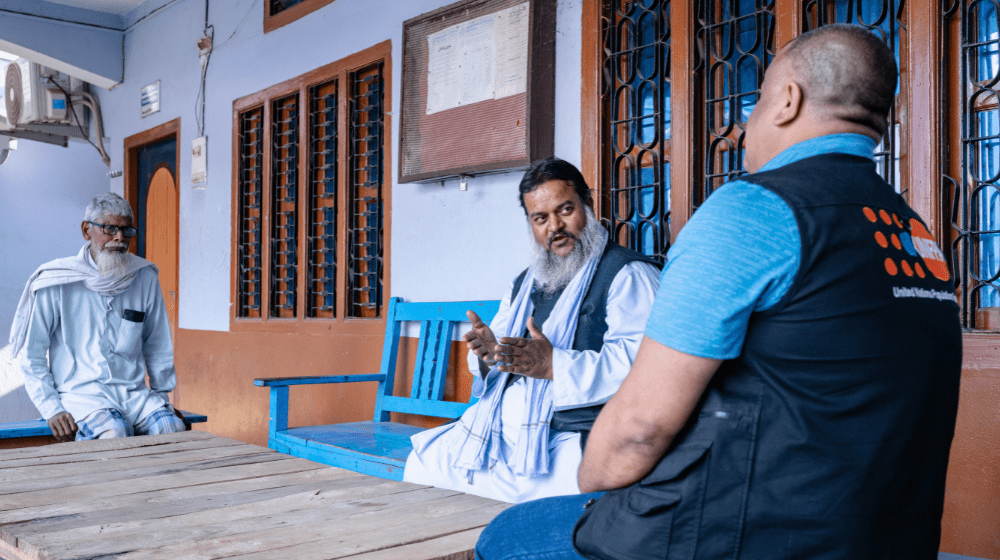Nepal has made some significant progress in combating harmful practices against women and girls over the past decade. There is, however, still one of the highest prevalences of child marriage in South Asia, with one in three women married before they reach the age of 18 years old. Levels of teenage pregnancy remain high, with one in ten teenagers aged 15 to 19 having had children. Women also still experience high levels of gender-based violence.
Adolescent girls continue to experience a range of obstacles in developing into young adults able to make the life choices they need to make, faced with social and cultural traditions that hold them back. While progress has been made, change cannot be achieved without men and boys. Engaging men and boys to work alongside women to improve sexual and reproductive health and rights and target gender-based violence is therefore crucial.
One such champion is the elected mayor of the major city of Biratnagar, Nagesh Koirala, who sees one of the major challenges in his role as promoting gender equality.
He reflects, “There are many factors leading to discrimination against our women, including unpaid domestic work, differences in access to education, and early marriage. All of these factors have contributed to barriers to gender equality, and we are aware of these issues and trying to address challenges through various local government initiatives. There is no development if we allow these practices to continue.”
As a response in the city, there have been an increasing number of initiatives that work to improve the lives of women, including in family planning, healthcare, and education, under his leadership.
During the mayor’s tenure, key tools such as gender-responsive budgets have increased from 14 percent in 2021 to 31 percent in 2024, ensuring a stronger gender lens in local government spending. This included allocations for family dialogue, adolescent girl empowerment programmes, and funding for crisis centres.
One scheme the mayor is a strong advocate for is the provision of services for gender-based violence survivors. These services were established in partnership with UNFPA, but the local council is taking increasing ownership, including in wider funding issues. For the professionals that work in this sector, such political leadership is crucial.
Bishnu Panta Sharma Acharya, who is the chairperson of a safe house for survivors of gender-based violence in Biratnagar, stresses. “It’s very motivating that the mayor’s office recognizes our credibility, and they trust us. This gives me a sense of relief and satisfaction because it gives our safe house a sense of security that the local government is always there for us, and satisfaction because our quest to support the survivors of gender-based violence is acknowledged by the government.”
In a different capacity, championing the right to information about family planning is one of Nepal’s local religious leaders and the rector of a school, Maulana Niaaz Ahmad. He says, “A healthy family equals a happy one, and this starts with educating and empowering young people with the right knowledge. Young people need to know about family planning and comprehensive sexuality education. Many schools don't teach these, so I'm glad that the children at my school are privy to this knowledge and information.”
A former student at the school agrees, “Having families also means being able to take care of them. Rushing into starting a family has severe repercussions on the health of the mother and the child, and it also comes with a financial burden. Planning families is easy if you think of your partner and your future together.” Maulana Niyaaz Ahmad has taught us about reproductive health and the need to safely plan families, and I am grateful for that knowledge,” he continues.
In two very different capacities, one as a politician and the other as an educator, these two men impact their communities to help shape the future of women and adolescent girls for positive outcomes. Through their efforts and as role models and public personalities, they are also influencing the behaviour of the next generation of boys and girls as they mature, as well as working with communities to secure their sexual and reproductive health and rights and ensuring they are better protected against harm today.


